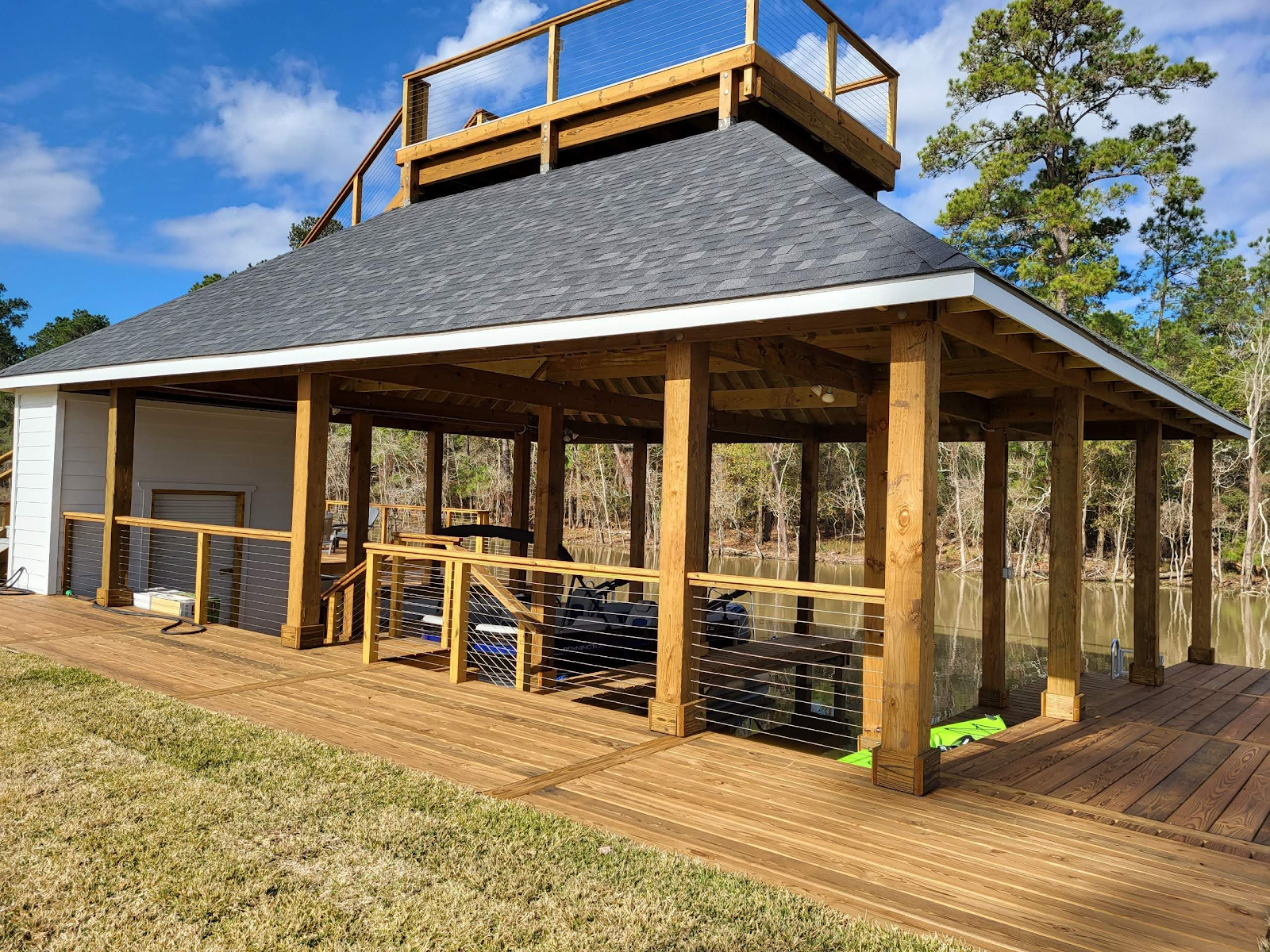Sustainable Home Builders in Melbourne: Building for Tomorrow
- Get link
- X
- Other Apps
Sustainable living has become more than just a trend; it is now a necessary shift towards a healthier and more sustainable future. With climate change and environmental degradation becoming increasingly pressing issues, the demand for eco-friendly and sustainable housing solutions has skyrocketed. In this context, Melbourne has emerged as a hub for green building innovation, thanks to the city's commitment to sustainability and a growing community of builders dedicated to constructing environmentally friendly homes. Among these, the sustainable home builder Melbourne community stands out, playing a crucial role in shaping the future of housing in the city.
The Importance of Sustainable Home Building
Before diving into the specifics of sustainable home builders in Melbourne, it’s essential to understand why sustainable home building is so crucial. Traditional construction methods have often relied on materials and processes that are harmful to the environment. These include the use of non-renewable resources, high energy consumption, and the production of significant waste and greenhouse gas emissions. Sustainable home building, on the other hand, focuses on reducing the environmental impact of construction by using eco-friendly materials, improving energy efficiency, and minimizing waste.
Environmental Benefits
One of the most significant benefits of sustainable home building is its positive impact on the environment. By using renewable materials, such as bamboo or recycled steel, and incorporating energy-efficient technologies, sustainable homes can significantly reduce their carbon footprint. Moreover, features like solar panels, rainwater harvesting systems, and green roofs contribute to resource conservation and environmental protection.
Economic Benefits
Sustainable homes are not only beneficial for the environment but also for homeowners’ wallets. Although the initial investment might be higher, sustainable homes offer long-term savings through reduced energy bills and maintenance costs. Energy-efficient appliances and insulation, for instance, lower electricity consumption, while durable materials reduce the need for frequent repairs and replacements.
Health Benefits
Sustainable homes also promote healthier living environments. The use of non-toxic materials, proper ventilation systems, and natural lighting improves indoor air quality and enhances the overall well-being of the occupants. This is particularly important in urban areas like Melbourne, where air pollution can be a significant concern.
Key Features of Sustainable Homes
To better understand what makes a home sustainable, let’s explore some key features commonly integrated by sustainable home builder Melbourne professionals.
Energy Efficiency
Energy efficiency is at the heart of sustainable home building. This involves designing homes that consume less energy for heating, cooling, and lighting. Key strategies include:
- Insulation: Proper insulation in walls, roofs, and floors helps maintain a comfortable indoor temperature, reducing the need for heating and cooling.
- Energy-efficient windows: Double or triple-glazed windows minimize heat loss and gain, contributing to a more stable indoor climate.
- Solar panels: Harnessing solar energy reduces reliance on non-renewable energy sources and lowers electricity bills.
- LED lighting: LED bulbs consume significantly less energy and have a longer lifespan compared to traditional incandescent bulbs.
Water Conservation
Water conservation is another critical aspect of sustainable home building. Techniques include:
- Low-flow fixtures: Installing low-flow faucets, showerheads, and toilets reduces water usage without compromising performance.
- Rainwater harvesting: Collecting and storing rainwater for use in gardening, flushing toilets, or even washing clothes.
- Greywater recycling: Reusing water from sinks, showers, and laundry for irrigation and other non-potable uses.
Sustainable Materials
Choosing sustainable materials is essential for minimizing the environmental impact of construction. These materials are often renewable, recycled, or have a low environmental footprint. Examples include:
- Bamboo: A fast-growing, renewable resource that is strong and durable.
- Recycled steel: Reduces the need for new steel production, which is energy-intensive and produces significant emissions.
- Reclaimed wood: Gives new life to old timber, reducing the demand for freshly cut trees.
- Eco-friendly insulation: Materials like sheep’s wool, cotton, and cellulose are effective insulators and have lower environmental impacts compared to synthetic options.
Indoor Air Quality
Good indoor air quality is crucial for the health and well-being of occupants. Sustainable home builders prioritize:
- Non-toxic materials: Using paints, adhesives, and finishes that emit low or no volatile organic compounds (VOCs).
- Ventilation systems: Installing systems that ensure a constant supply of fresh air while removing stale air and indoor pollutants.
- Natural light: Maximizing natural light reduces the need for artificial lighting and creates a more pleasant living environment.
Leading Sustainable Home Builders in Melbourne
Melbourne is home to several renowned sustainable home builders who are setting new standards in eco-friendly construction. These builders are committed to creating homes that are not only environmentally responsible but also beautiful and functional.
Gruen Eco Design
Gruen Eco Design is a Melbourne-based firm specializing in sustainable and energy-efficient homes. They focus on creating custom designs that are tailored to the specific needs and preferences of their clients while ensuring minimal environmental impact. Their homes feature passive solar design, high-performance insulation, and sustainable materials.
Positive Footprints
Positive Footprints is another leading sustainable home builder in Melbourne. They offer a range of services, from design to construction, ensuring that every aspect of the home is optimized for sustainability. Their projects often achieve impressive energy ratings, thanks to features like solar power, rainwater harvesting, and high-efficiency heating and cooling systems.
Ecoliv Buildings
Ecoliv Buildings specializes in modular, prefabricated homes that are designed for sustainability and efficiency. Their homes are built using sustainable materials and incorporate energy-efficient features such as solar panels, water tanks, and passive design principles. Ecoliv's modular approach also minimizes waste and construction time, making their homes a great option for those looking to reduce their environmental footprint quickly.
The Sociable Weaver
The Sociable Weaver is known for its commitment to sustainability and community. They design and build homes that are environmentally responsible and support a healthy lifestyle. Their homes often feature natural materials, energy-efficient systems, and innovative design elements that promote well-being and sustainability.
Case Studies of Sustainable Homes in Melbourne
To illustrate the impact and benefits of sustainable home building, let’s look at some case studies of homes built by these leading builders in Melbourne.
The Greenhouse by Gruen Eco Design
The Greenhouse is a stunning example of sustainable home design by Gruen Eco Design. This home features passive solar design, high-performance insulation, and a green roof that helps regulate indoor temperatures and reduce stormwater runoff. Solar panels and rainwater harvesting systems further enhance the home’s sustainability. The use of natural and recycled materials creates a warm and inviting living space that is both eco-friendly and aesthetically pleasing.
The Positive Footprints Project
Positive Footprints recently completed a project that achieved a 9-star energy rating. This home incorporates a range of sustainable features, including solar panels, energy-efficient windows, and a high-efficiency heating and cooling system. The design also maximizes natural light and ventilation, creating a comfortable and healthy living environment. Recycled materials and low-VOC finishes further enhance the home’s sustainability.
Ecoliv's Modular Eco Home
Ecoliv Buildings designed and constructed a modular eco home that showcases the benefits of prefabricated sustainable construction. The home features a compact, efficient layout with energy-efficient appliances, solar power, and rainwater harvesting systems. The use of sustainable materials and the modular construction process significantly reduced waste and construction time. This project demonstrates how sustainable homes can be built quickly and efficiently without compromising on quality or environmental responsibility.
The Sociable Weaver's 10 Star Home
The Sociable Weaver’s 10 Star Home is a benchmark for sustainable living. This home achieved a perfect 10-star energy rating, thanks to its innovative design and high-performance features. The home uses passive solar principles, high-quality insulation, and a range of sustainable materials. Solar panels and a battery storage system provide renewable energy, while a greywater recycling system and water-efficient fixtures reduce water consumption. The 10 Star Home is a testament to what can be achieved when sustainability is prioritized in home building.
The Future of Sustainable Home Building in Melbourne
The future of sustainable home building in Melbourne looks promising, with ongoing advancements in technology and a growing commitment to environmental responsibility. Several trends and innovations are likely to shape the future of sustainable home building in the city.
Advanced Building Materials
The development of new, advanced building materials will play a significant role in the future of sustainable home building. These materials will offer improved performance and durability while reducing environmental impact. Examples include:
- Biodegradable materials: Materials that can decompose naturally without harming the environment.
- Smart materials: Materials that can respond to environmental changes, such as temperature or humidity, to improve energy efficiency.
- Recycled materials: Innovations in recycling technology will allow for a broader range of materials to be reused in construction.
Smart Home Technologies
Smart home technologies are becoming increasingly important in sustainable home building. These technologies allow homeowners to monitor and control their energy usage, improving efficiency and reducing waste. Examples include:
- Smart thermostats: These devices learn homeowners’ habits and adjust heating and cooling systems accordingly to optimize energy usage.
- Energy monitoring systems: These systems provide real-time data on energy consumption, helping homeowners identify areas for improvement.
- Automated lighting: Smart lighting systems can adjust based on occupancy and natural light levels, reducing energy usage.
Community and Urban Planning
Sustainable home building is not just about individual homes; it also involves community and urban planning. Future developments will focus on creating sustainable communities that promote eco-friendly living. This includes:
- Mixed-use developments: Integrating residential, commercial, and recreational spaces to reduce the need for transportation and promote local economies.
- Green infrastructure: Incorporating green spaces, parks, and natural features into urban planning to enhance environmental quality and residents’ well-being.
- Public transportation: Developing efficient and accessible public transportation systems to reduce reliance on private vehicles and lower carbon emissions.
Conclusion
Sustainable home building is a vital component of the global effort to combat climate change and promote environmental responsibility. In Melbourne, sustainable home builder Melbourne professionals are leading the way by designing and constructing homes that are energy-efficient, environmentally friendly, and healthy to live in. As technology advances and the commitment to sustainability grows, the future of sustainable home building in Melbourne looks bright.
Choosing a sustainable home builder in Melbourne is not just an investment in a property but also in the future of the planet. By embracing sustainable building practices, homeowners can enjoy the benefits of lower energy bills, healthier living environments, and the satisfaction of contributing to a more sustainable world. Whether you are building a new home or renovating an existing one, consider working with one of Melbourne’s many talented passive house builders to ensure your project is as sustainable and eco-friendly as possible.
- Get link
- X
- Other Apps





Comments
Post a Comment